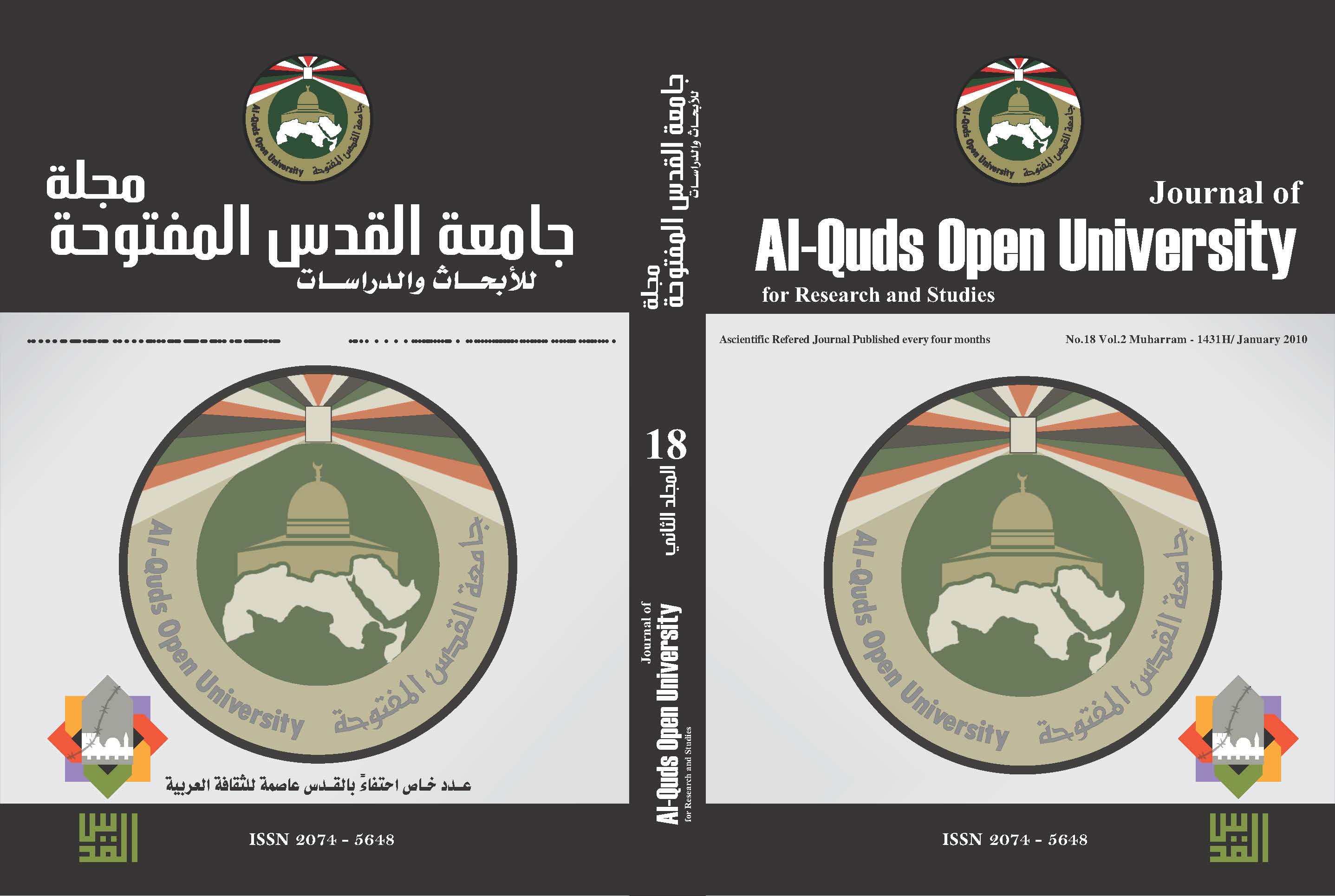The Relationship between Knowledge Management Operations and the Effectiveness of the NGOs Activities in East Jerusalem
Keywords:
knowledge management, effectiveness, NGOs, East JerusalemAbstract
This study aimed at identifying the reality of knowledge management in
the NGOs in East Jerusalem through observing the actual implementation
of the different operations of knowledge management (diagnosing, planning,
innovating, publishing, sharing, generating, gaining, organizing, saving,
retreating, implementing, following up and monitoring knowledge in the NGOs
in East Jerusalem). The study also aimed at identifying the effective level
of the activities of such institutions in East Jerusalem. Moreover, the study
aimed at pointing out the role of knowledge management in accomplishing the
effectiveness of the activities planned by the NGOs. Furthermore, the study
realized the most important obstructions standing in the way of implementing
knowledge management in the NGOs institutions in East Jerusalem. A set
of questions and hypotheses were put to treat the problem of the study with
all its dimensions. The population of the study consisted of the managerial
staff in 135 NGOs in East Jerusalem. 193 questionnaires were distributed
over a managerial staff of a random sample of the study which consisted of
eight NGOs sectors in East Jerusalem. 187 questionnaires were retrieved
and 5 were alienated for their incompetency. Therefore the sample of the
study was 182. This study used the questionnaire as an instrument for
collecting the required data. The questionnaire validity was tested by a group
of evaluaters. Moreover, the reliability of the instrument was computed by
using the Cronbach Alpha Formula. The statistics which used to analyze the
results were: means, standard deviations and centenary percentages. The
hypotheses were tested through Pearson deviation.
The results showed that the NGOs in East Jerusalem with all its sectors
use the knowledge management through all its practical procedures that
are embedded in: diagnosing, planning, innovating, publishing, sharing,
generating, gaining, organizing, saving, retreating, implementing, following
up and monitoring knowledge. The results also showed a significant relation
at (a≤ 0.05) between the implantation of knowledge management and the
effectiveness of the NGOs in East Jerusalem.
In light of those results a group of recommendations that strengthen the
use of knowledge management and reinforce the effective role of the NGOs in
East Jerusalem were proposed.
The most important recommendations lie in the following: the high
managerial level of knowledge management should be supported; the
importance of establishing an independent unit that works on developing the
activities of knowledge management and makes sure that all the knowledge
management procedures are implemented in those NGOs institutions. Finally
it was recommended to work on the developing of the electronic media and
the internet programs as a way to gain and exchange knowledge.
Downloads
Published
How to Cite
Issue
Section
License
- The editorial board confirms its commitment to the intellectual property rights
- Researchers also have to commit to the intellectual property rights.
- The research copyrights and publication are owned by the Journal once the researcher is notified about the approval of the paper. The scientific materials published or approved for publishing in the Journal should not be republished unless a written acknowledgment is obtained by the Deanship of Scientific Research.
- Research papers should not be published or republished unless a written acknowledgement is obtained from the Deanship of Scientific Research.
- The researcher has the right to accredit the research to himself, and to place his name on all the copies, editions and volumes published.
- The author has the right to request the accreditation of the published papers to himself.













_2.png)
_.png)
_2.png)
_1.png)
_.png)

